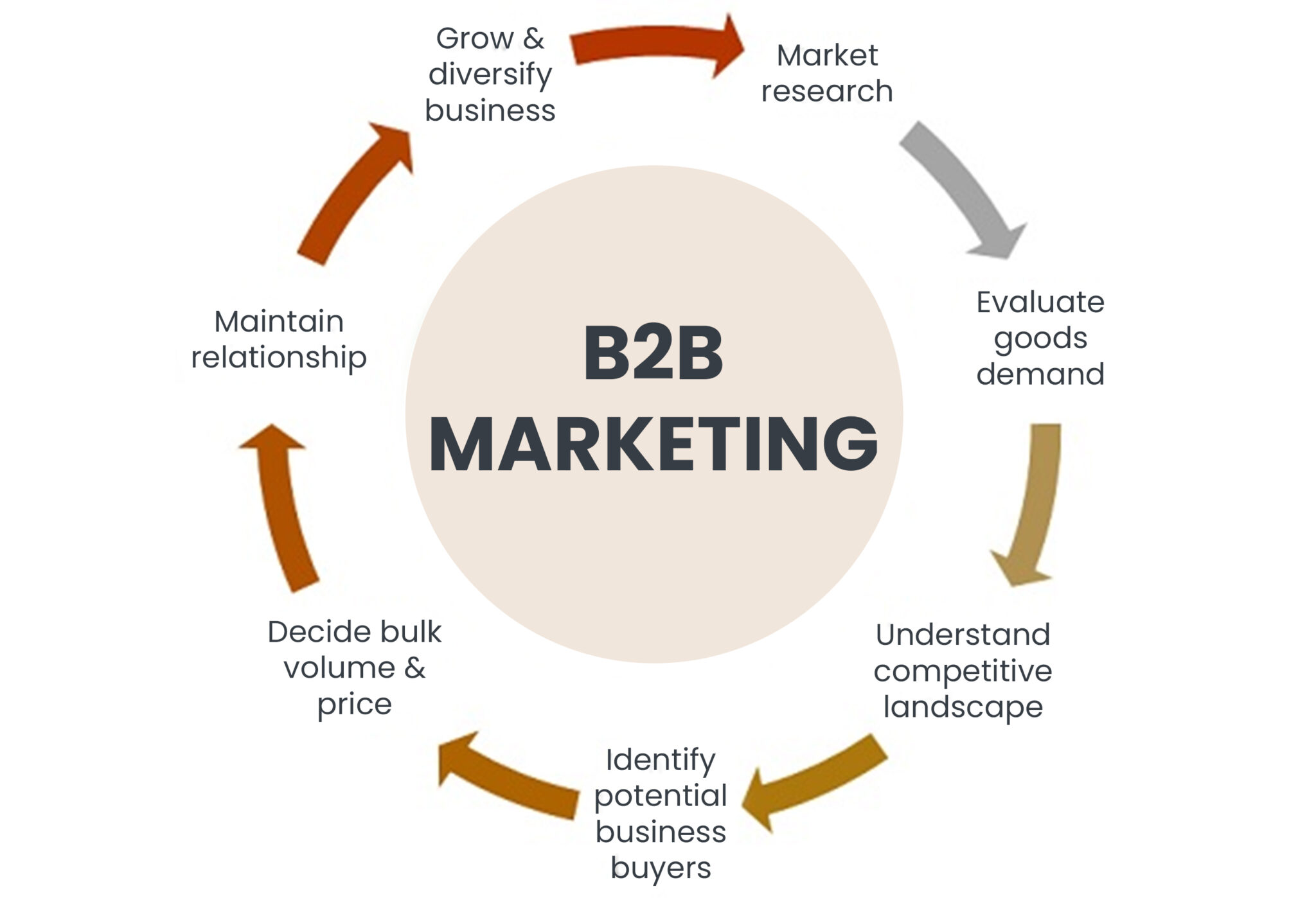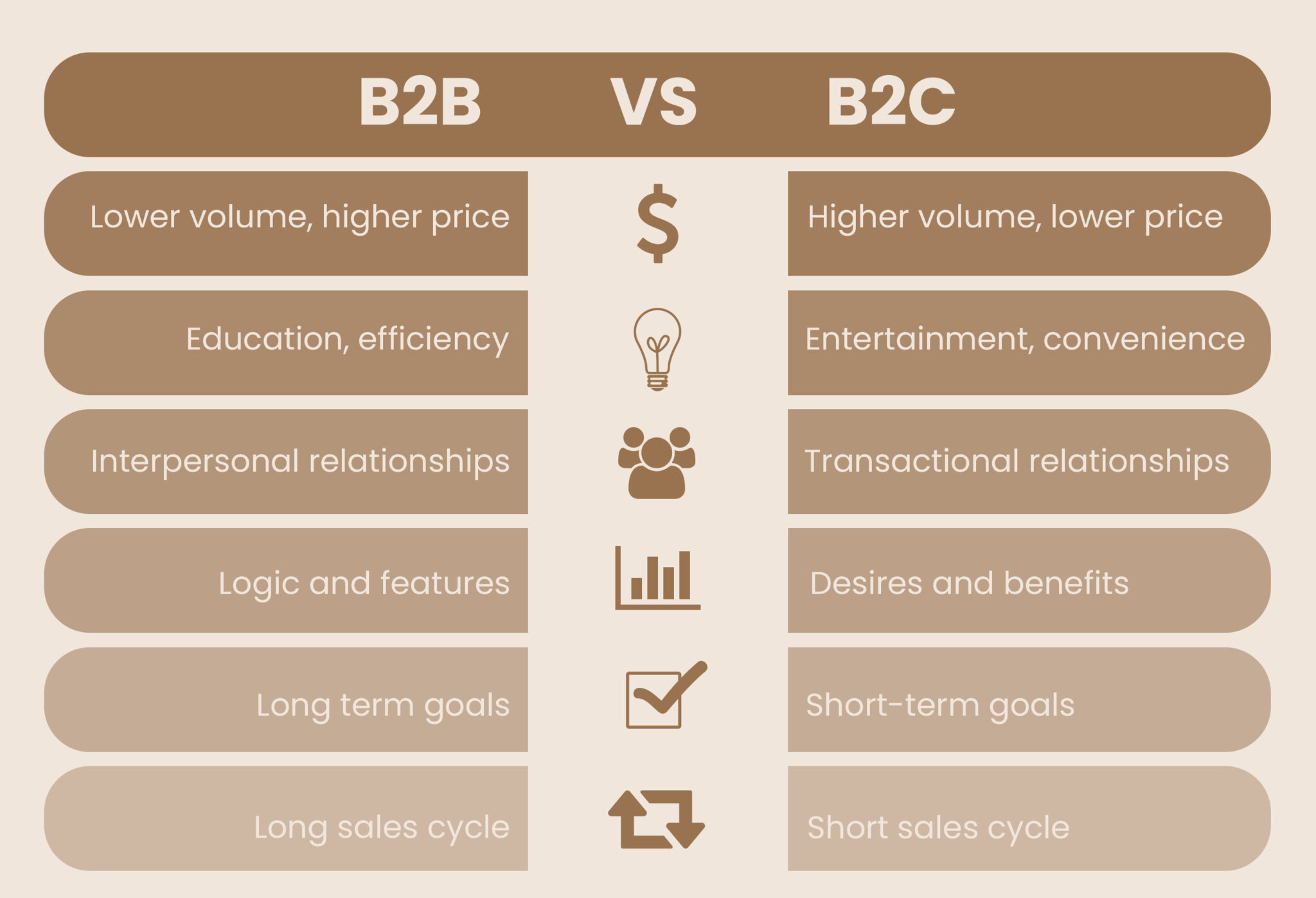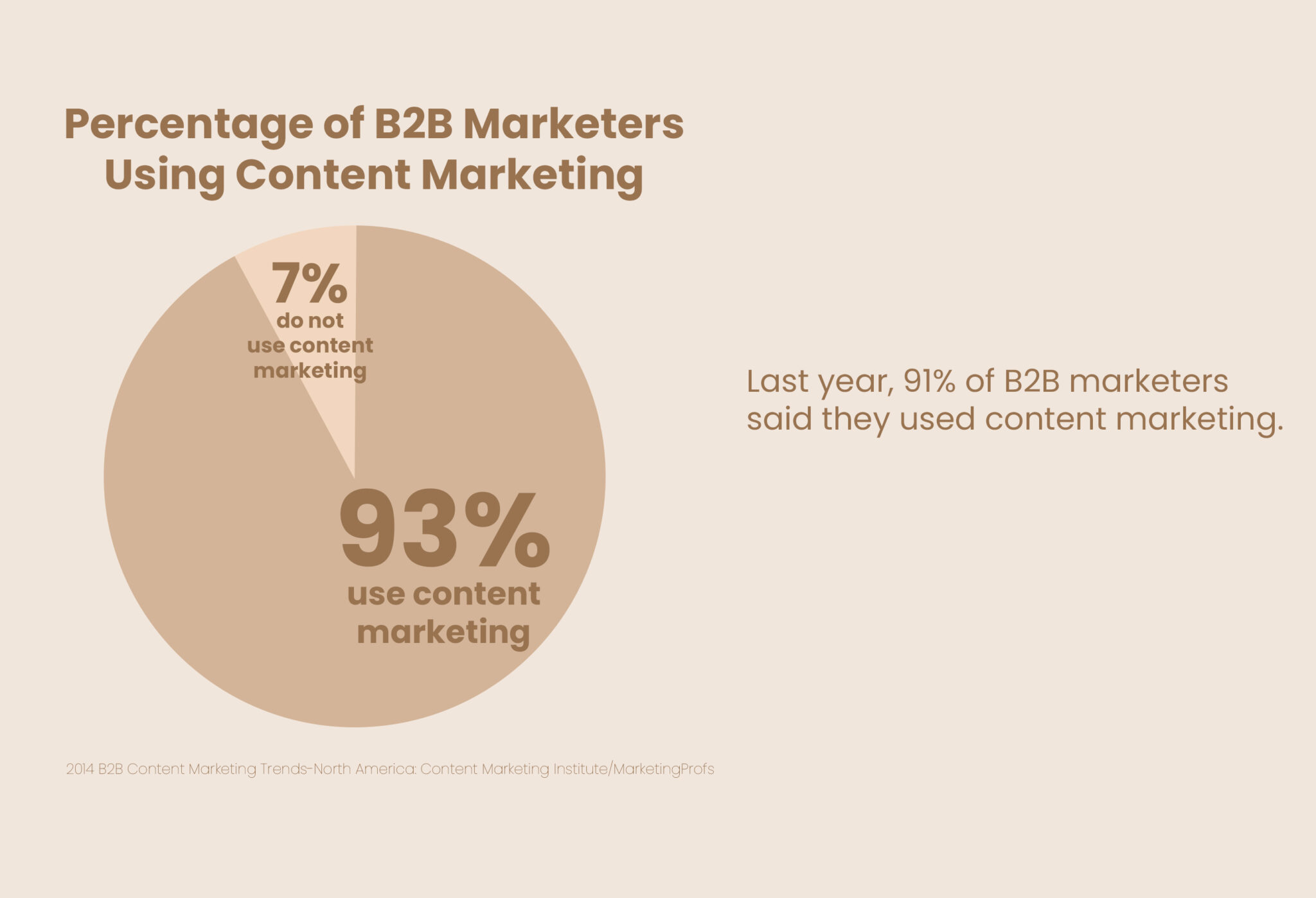Effective marketing is difficult to get right. Between creative demands, budget limits, and channel decisions, marketers have a lot to juggle when developing their marketing strategy. Through this post, we’ll be discussing something all you startup entrepreneurs need to know, which is B2B marketing. We’ll walk you through B2B marketing strategies that startups can use. And all the strategies we present to you are budget-friendly. So you don’t need a lot of money to incorporate them into your startup business. You must be curious to learn about these strategies and more. So let’s get into the post.
What is B2B marketing?
Let’s start with the basics and discuss what B2B marketing is. If your startup creates a product or service specifically for another company, you are running a B2B, a.k.a. business-to-business, company.
B2B marketing aims at converting other businesses into your consumers. This goal is obtained by familiarizing those businesses with your brand name and the value of your product or service.

The difference between B2B and B2C marketing
B2B marketing and B2C marketing sound very similar, right? It’s quite easy to confuse the two types of marketing. B2B and B2C marketing are two types of marketing that are also completely different from each other. They differ in strategies and applications, as well as in their audiences and the way they communicate with them.
On one hand, B2B marketing focuses on the needs, interests, and challenges of individuals who are making purchases on behalf of, or for, their business (rather than for themselves). So in this case, the organization is the customer.
On the other hand, B2C marketing focuses on the needs, interests, and challenges of individual consumers who are making purchases on behalf of or for themselves. In this case, therefore, the individual is the customer.

B2B Marketing Strategies for Startup Success
1. Research and understand your customers’ businesses
Keep in mind that buyers expect you to find out if their business needs your products. So it’s important to get this right. To succeed, you will need to do your research. Both online and offline research will help you with this. What’s important is to dive deep and figure out your target companies well. It may sound like a lot of work and not the most important strategy. However, trust us when we say this is crucial. The time and effort you put into studying your target businesses will come in handy. It will come with advantages like saving you wads of money. Plus, the work you put in will help you make more money too. So it’s surely worth it to do your research.
So what should you look for in your research about the companies? Well, it’s a must to look into the uniqueness of your clients’ buying personas. For instance, find out the answers to these questions:
-
- Will they be using your product or service exclusively as their business’s driving force or will they use it to obtain traction from end users?
-
- What is the vision of their business?
-
- Who are their final consumers?
-
- What is the preferred transaction method of your target companies? Is it the online method or a face-to-face meeting?
-
- What are their opinions about similar products, and how will your products stand out as per their assessment?
Keep in mind that it is not just the entities that you should look into. It is also crucial to learn about the people behind these brands, which will help you close a deal with them.
2. Study Your Competitors
To compete well, you need to know your competitors. You must know everything that you possibly can about your competition in the B2B market. A lot of companies have a digital presence. You can do a quick check on them by simply checking out the customer reviews, ratings, and feedback on these competing brands. See if there are any complaints or criticism and take steps to avoid those mistakes in your business.

Studying your competitors helps you know what you have that they don’t, and vice versa. So when the time comes to present your pitch to a potential purchaser, you can clearly say what makes you better than your competitors!
3. Come up with your own unique selling point
A benefit of studying your competitors is being able to create your USP (unique selling point). Basically, USP is the x-factor or feature that helps you stand out amongst your competitors. It is crucial to create a USP to win over the market. Here are the steps you can take to create your USP:
-
- Survey your customers and find out what special features of your products they like.
-
- Create a list of your top features and rank them according to customer preference.
-
- Highlight the top 3 special features to compare with your main 3 competitors.
-
- Write down the features that are being evaluated higher than those of your rivals.
Your USP can be created with the details you collected from the above by focusing on factors such as features, impact, target audience, and needs.
4. Make use of blog posts
As a startup business, you need to put in a lot of effort and hard work, even more than a regular business. It’s important to take steps to stand out in the market amongst a lot of competitors. And if you are just starting out, this competition can be tougher. You might be thinking to yourself, “How can my business, which is just starting out, compete with brands that have been around for years?’
It may be overwhelming. However, remember that all those brands started from scratch too. So if you put in the work and take the right steps, you too can conquer the market. As an initial step, it’s important to improve your visibility to stand out in the market. In this case, digital tools come in handy.
You can make your brand visible in the digital world by creating your own website and maintaining a blog. Some people say that people are not into blogs anymore. However, this is not true at all. Blogs are still around and have incredible value. The articles in your blog will not only improve your visibility in the social spheres, but they will also help you establish your subject matter expertise in the domain where your product or service belongs.
Plus, a well-read blog is a great tool that can help you with marketing as it will generate leads cost-effectively.

5. Use social media
Social media can help your startup grow beyond your imagination. As a B2B business, you have many online avenues in social media to explore. Take a look at the following examples:
You can create a LinkedIn profile and use it to promote your product launches and share other domain-specific ideas. Plus, the platform also enables you to strengthen bonds with key connections. You get the chance to connect with the decision-makers of your target company in a professional setting.
Creating a Twitter account helps you get noticed. It increases your chances of getting on your target companies’ radar. All you have to do is choose the right hashtags and reach out to relevant people. You will see how this platform is an awesome B2B marketing strategy.
Facebook is an easy way for customers to ask for support from your company. This platform helps you communicate and create solutions to customer problems on time. This is also an excellent platform when it comes to generating more traffic for your website or blog.
Instagram is another great method to try. Since this platform allows you to showcase user-generated content, it’s cost-effective. Instagram is also a platform that you can use to present the lighter, more fun side of your brand.
6. Don’t forget about your existing customers
As a startup business, you are constantly trying to grow. You are in the process of building your brand, coming up with great products, and creating a loyal customer base. But, while doing so, you cannot forget the existing dedicated customers you have. Although you may only have a few, if any at all, at this stage, you have to keep them with you as your business grows.
You may not realize this now, but your loyal customers can help you a lot with marketing. In fact, a loyal clientele is the best marketing you can have. For this to work, you have to keep your customers loyal to your brand. Here, you can take steps such as building a loyalty program that rewards them for different types of promotions, like introducing a new customer to the business. For instance, you can reward your customer with a discount for introducing a new customer to your brand. As you can imagine, this will encourage them to continue promoting your brand to enjoy a discounted price.
B2B marketing for startups: wrapping up
There you go! Now you know all about B2B marketing for startups. We presented you with some of the best B2B marketing strategies. Incorporating the right marketing strategies can make a huge difference. It will help with your brand awareness and promise you a loyal clientele. The strategies we discussed today can be applied to any startup business, as they are budget-friendly. If you apply these marketing strategies to your startup, you will surely be able to grow at a much faster rate.

